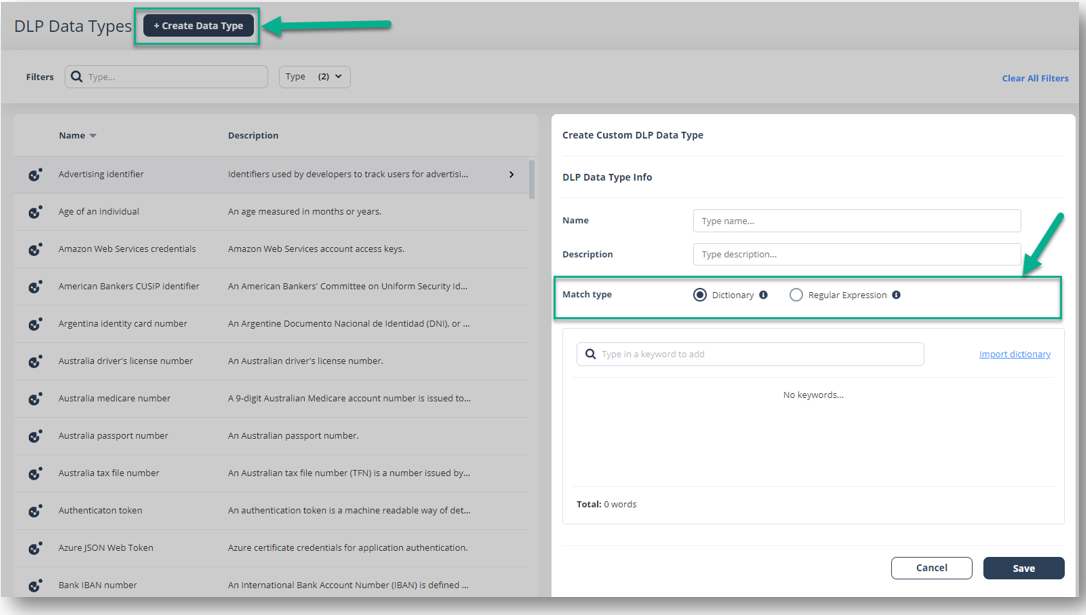Data loss prevention is a key part of any email security solution. Preventing sensitive data from getting into the wrong hands is an essential part of what we do.
But every organization defines sensitive data differently. And every organization handles different types of sensitive data. Hospitals, of course, handle a lot of personal health information. A real estate brokerage has a lot of bank info, but probably not a ton of personal health information.
A one-sized fits all DLP policy, then, might not work. It's why we have a granular and configurable DLP engine to create a custom policy that works for your organization. Defining the right DLP policy for your organization is a complex process. Some aspects of the DLP policy are based on generic data types, such as identification numbers, credit cards, source code etc.
However, you cannot neglect the data types that are unique to your organization. Specific terms or phrases, customer lists, indicative words for internal sensitive data and more. For this purpose exactly, we are now introducing Custom Data Types.
Administrators can now define custom data types, based on a list of words or regular expressions, so that their DLP policy covers all types of sensitive data that needs to be governed.

With this feature, you'll be able to customize your DLP policies to ensure the best possible fit for your organization, and that no sensitive data goes where it isn't supposed to.






